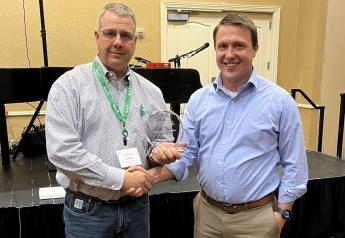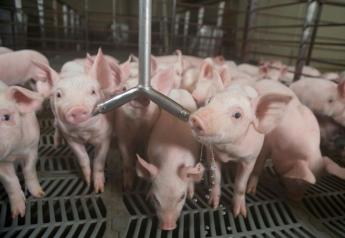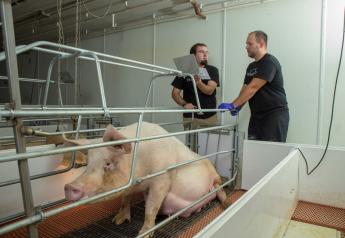Veterinarians Weigh In On Biggest Challenges Facing Swine Health
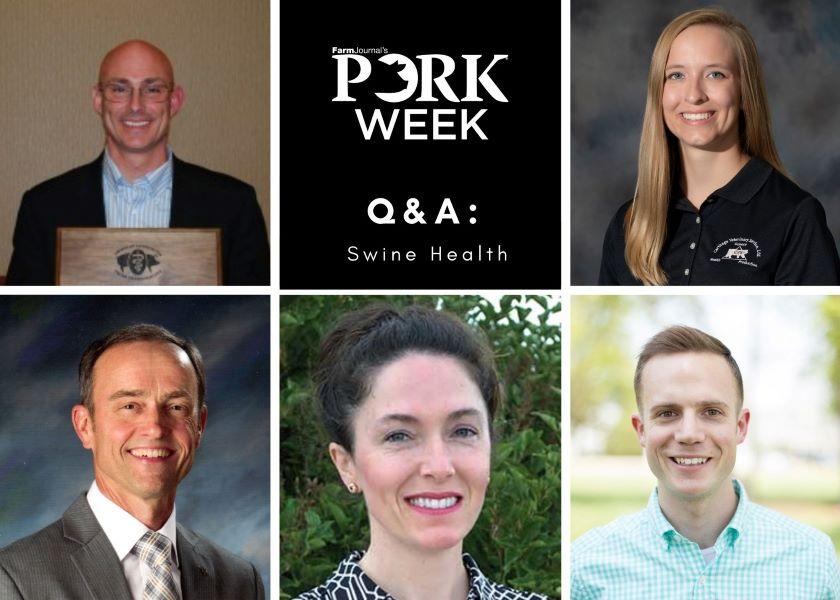
Antibiotic use. Public perception. Work-life balance. Disease prevention. Animal welfare. Mental health. The challenges facing swine veterinarians today are widespread. Farm Journal's PORK asked five swine veterinarians to share their perspectives on the pork industry and the best piece of advice they've heard lately.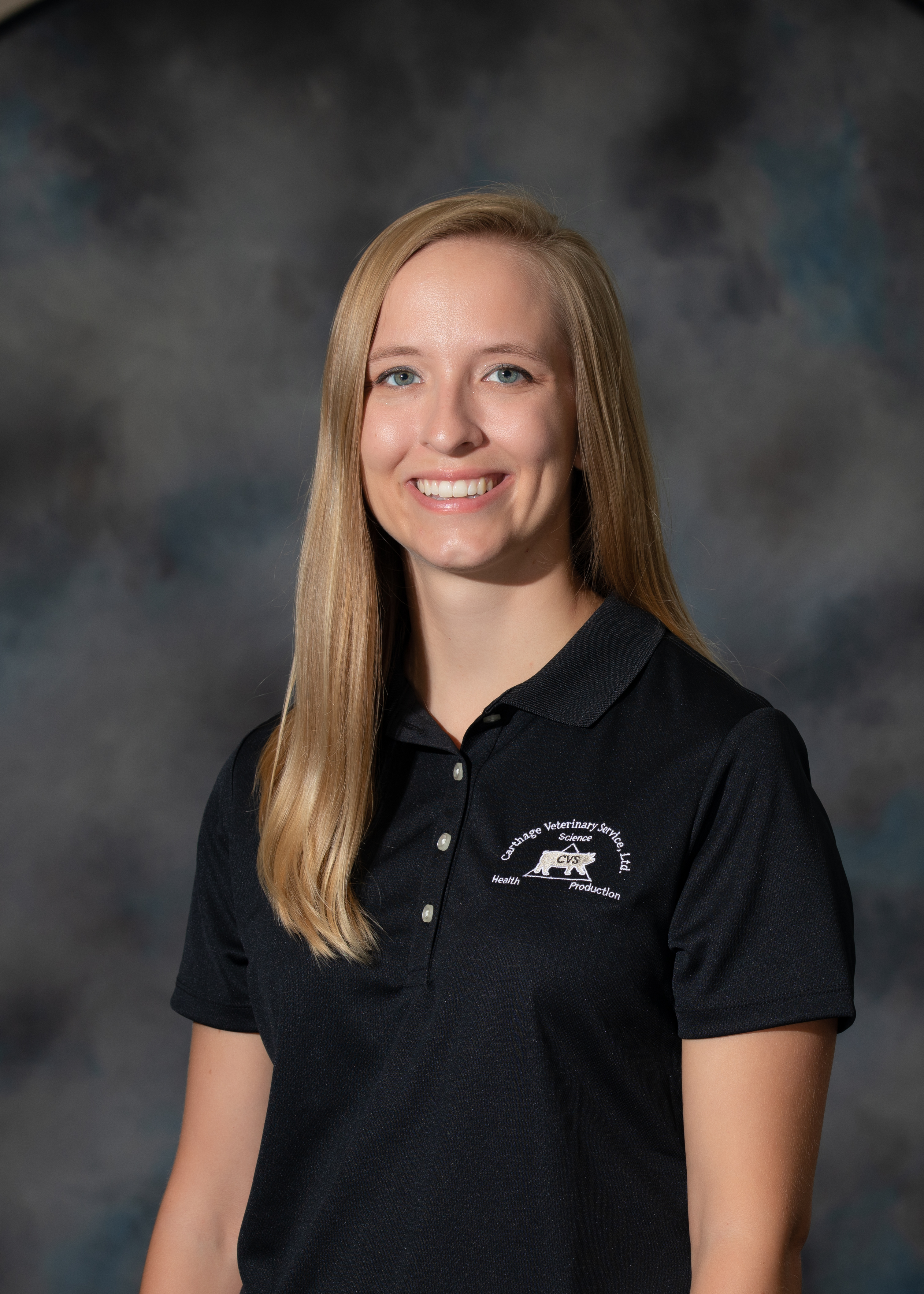
Megan Bloemer, DVM
Carthage Veterinary Service, LTD – Carthage, Illinois
Q. What is one thing producers need to pay special attention to right now regarding swine health?
A. Swine producers should remain vigilant in their biosecurity protocols and be even more mindful than they already are about foreign animal diseases, specifically African swine fever (ASF).
Q. What is the biggest challenge facing veterinarians today?
A. As a recent graduate, I think that mental health in the veterinary medical profession is a challenge we are just now recognizing and addressing.
Q. If you could eliminate one swine disease forever, what would it be and why?
A. I would eliminate ASF because of the economic, societal and emotional impacts this devastating disease has on swine producers.
Q. What’s the best piece of advice you’ve heard lately?
A. Dr. Larry Firkins spoke at the recent Carthage Veterinary Service Spring Swine Symposium and he quoted Dr. Aaron Smiley saying, “You have value! Stop worrying if you are significant – you are!” I think this is great advice as we all navigate through the unprecedented COVID-19 pandemic, its impacts and encounter new challenges.

Wesley Lyons, DVM
Pipestone Veterinary Services – Sycamore, Illinois
Q. What is one thing producers need to pay special attention to right now regarding swine health?
A. I can never overstate the importance of biosecurity. We tend to think about high-consequence viruses like porcine reproductive and respiratory virus (PRRSv) and porcine epidemic diarrhea virus (PEDv) as seasonal diseases with spikes in prevalence during fall and winter. Unfortunately, we are seeing the incidence of these diseases leach into all times of year. If we continue the mindset of spring and summer being low prevalence, we risk complacency in our biosecurity and open ourselves up to breaks.
Q. What is the biggest challenge facing veterinarians today?
A. As a passionate herd veterinarian that also wears the hats of new dad and millennial, I can unequivocally say that the biggest challenge is balance. Balancing the needs of farmers with home life and the desire to have a separation between the two is challenging to say the least. Burnout in the veterinary profession is real, and employers, whether they be small clinics or large integrators, should take note of work/life balance for their entire teams. Passion and compassion for a career can lead to fatigue and burnout. Days off should be utilized, and employers should never discourage responsible use of PTO.
Q. If you could eliminate one swine disease forever, what would it be and why?
A. PRRS is the constant thorn in my side. The persistence and mutation rate of the virus make it the costliest disease to U.S. pig farmers year over year. I have so many farmers that, based on their geographic location and proximity to other farms, are having to change their business models in order to stay in the industry. Continuous flow sites in close proximity to other pigs continue to face challenges if and when a PRRS strain comes in.
Q. What’s the best piece of advice you’ve heard lately?
A. I recently heard someone ask our CEO, Dr. Luke Minion, how he handles bad news. I took what he said and have been applying it daily. I’ve liked the results so far. He said, “I always face the worst possible outcome first. I don’t live in hope that maybe there will be a better outcome. This allows me to focus on the fix and not the what if’s.”
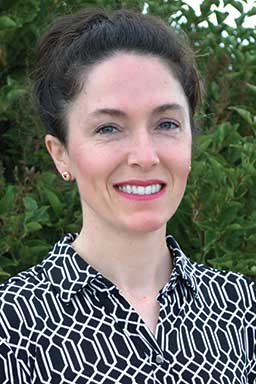
Deb Murray, DVM
New Fashion Pork – Jackson, Minnesota
Q. What is one thing producers need to pay special attention to right now regarding swine health?
A. Biosecurity. There are a lot of highly virulent PRRSv strains still circulating this year and we don’t have effective treatment for them, so prevention is our best option.
Q. What is the biggest challenge facing veterinarians today?
A. Trying to balance antibiotic use, disease prevention and animal welfare, as well as educating the public on animal production as fewer people grow up on farms or have had any experience on a farm. This makes it very difficult to explain what we do as producers and veterinarians and why we do it. In addition, I believe it’s a challenge for the general public to understand that some use of antibiotics are needed which can improve welfare as well as reduce overall usage as it prevents disease outbreaks.
Q. If you could eliminate one swine disease forever, what would it be and why?
A. That would be a toss-up between PRRSv and ASF. ASF would be first choice worldwide, but for the U.S., my first choice would be PRRSv. This is due to the high cost to the industry as well as the devastation both diseases cause in terms of animal health, welfare and for PRRSv, the added increase in antibiotic use due to the immunosuppression this disease causes.
Q. What’s the best piece of advice you’ve heard lately?
A. Maybe not a recent piece of advice, but a good piece of advice is “Pigs never lie.” When trying to problem-solve a health challenge on a group of pigs, sometimes the cause is not clear and we may not have the best records or accurate ones. But in the end, the pigs never lie so they will tell you the story. You just have to pay close attention to what they are saying.
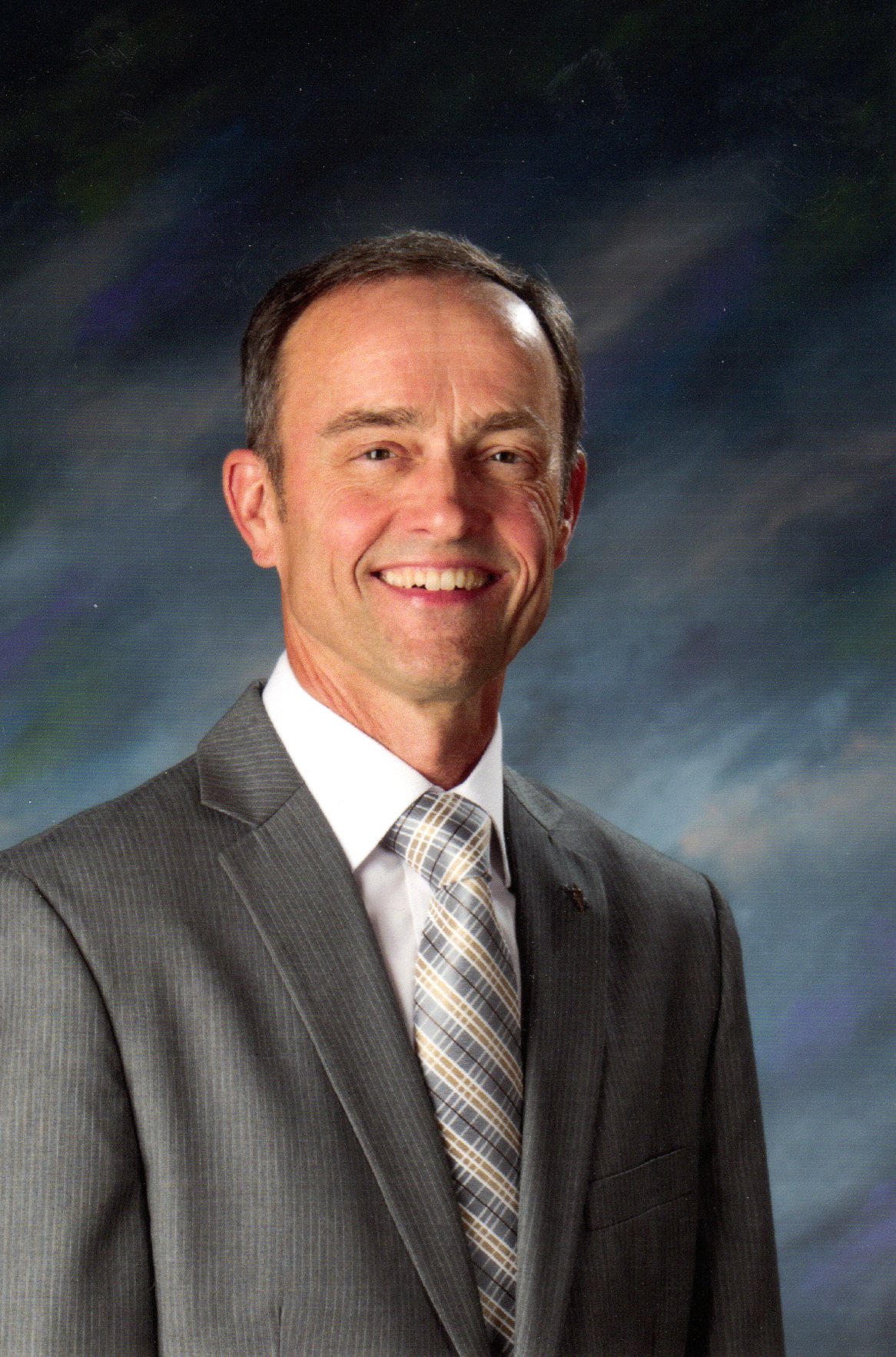
Max Rodibaugh, DVM
AMVC Swine Health Services – Frankfort, Indiana
Q. What is one thing producers need to pay special attention to right now regarding swine health?
A. Maintain diligence in biosecurity, disease management and control. Even though market prices are great, inputs are moving higher. Also, invest in improving performance to be prepared when margins decrease.
Q. What is the biggest challenge facing veterinarians today?
A. Taking the time to be engaged in and learn all types of production arrangements and scenarios, improving the veterinarian’s ability to provide the best service/knowledge possible.
Q. If you could eliminate one swine disease forever, what would it be and why?
A. PRRSv – this answer needs no “why” in my opinion!
Q. What’s the best piece of advice you’ve heard lately?
A. Be open to reading and learning from other science-based professionals outside of our own area of work.
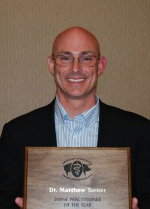
Matthew Turner, DVM
JBS Live Pork – Greeley, Colorado
Q. What is one thing producers need to pay special attention to right now regarding swine health?
A. Biosecurity- Focus on keeping viruses out of farms in all phases of production. Today the focus is PRRSv and PEDv but others will come. Pay special attention to transportation of animals, location of facilities for long-term success and invest in infrastructure to protect herd health.
Q. What is the biggest challenge facing veterinarians today?
A. PRRSv has been a major challenge since it arrived in the U.S., we have not made any significant headway as this virus continues to be one step ahead of us.
Q. If you could eliminate one swine disease forever, what would it be and why?
A. Influenza would be my choice. Even though other diseases cost the swine industry much more, the fact that pigs are important in the epidemiology of influenza with human health impacts moves that disease into my top spot for elimination.
Q. What’s the best piece of advice you’ve heard lately?
A. When you feel overwhelmed, realize you cannot fix everything. Pick the most important thing you can fix and do it. Repeat this process until you realize what the important things really were in the first place.
We will be uniting together June 7-13 for PORK Week across all of our Farm Journal platforms to elevate the important role the pork industry plays in feeding the world. Share your stories and post photos on social media using #PORKWeek21 to help us honor the pork industry. From “AgDay TV” to “AgriTalk” to “U.S. Farm Report” to PorkBusiness.com and everything in between, tune in and join us as we acknowledge the most noble profession there is: feeding people.
More from Farm Journal's PORK:
Celebrate #PORKWeek with Farm Journal’s PORK
Behind the Scenes with 5 State Pork Executives
Is This Year’s PRRS Better or Worse?
Modern Mythbuster: Eric Stonestreet Sets Out to Bust Pig Farming Myths


